Growth in NHS recruits from abroad prompts concern about over-reliance
- Published

The BMA doctors' union said government must do more to reduce reliance on foreign medics
The NHS in England is increasingly reliant on doctors and nurses recruited from outside the UK and EU, analysis has found.
Some 34% of doctors joining the health service last year came from overseas, a rise from 18% in 2014.
The government said overseas recruitment had always been part of its strategy.
But unions have warned it is an unsustainable way of recruiting in the long-term.
A total of 39,558 domestically trained doctors and nurses joined the NHS in 2020-21, which is just over 3,200 more than in 2014-15.
But UK medics have been occupying a decreasing proportion of the overall 1.35 million workforce during that period.
The BBC's Shared Data Unit analysed workforce data provided by NHS Digital from 2015 to 2021.
That analysis found:
The share of UK doctors joining the health service had fallen from 69% in 2015 to 58% last year. Over the same period, the share of new UK nurses fell from 74% to 61%
The share of doctors recruited from outside of the UK and the EU rose from 18% to 34% while the share of nurses rose from 7% to 34%
Patricia Marquis, Royal College of Nursing (RCN) director for England, said ministers must do more to reduce the "disproportionate reliance" on international recruits.
The government is funding an additional 1,500 undergraduate medical school places each year for domestic students in England - a 25% increase over three years.
However, last week a report by MPs concluded the large number of unfilled NHS job vacancies, about 110,000 in total, was posing a serious risk to patient safety.
Danny Mortimer, chief executive of NHS Employers, said it was "high time for the government to commit to a fully-funded, long-term workforce plan for the NHS" to tackle "chronic workforce shortages".
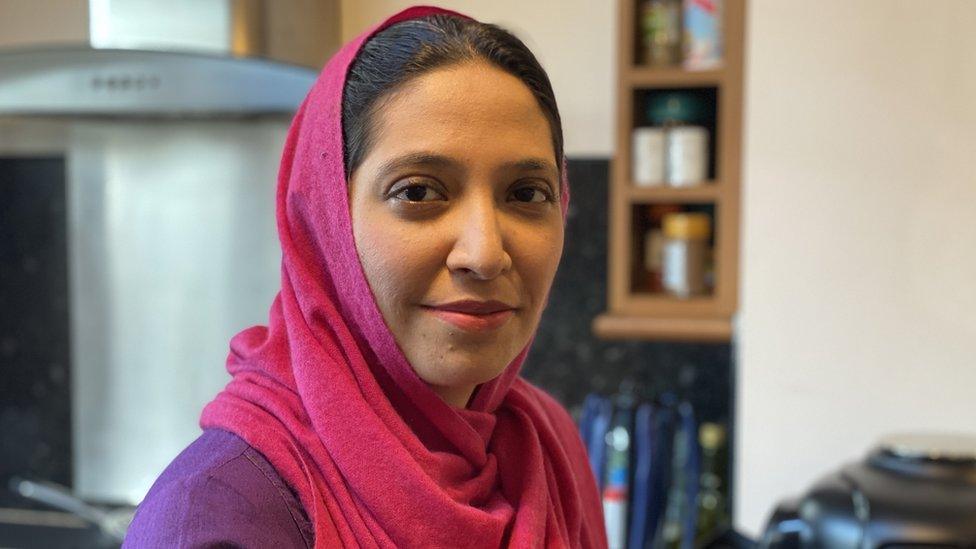
Radiologist Sumaira Babar says she has no plans to leave the UK having moved to Huddersfield in October
Consultant radiologist Sumaira Babar is just one of the growing proportion to join the NHS from overseas. She moved from Karachi in Pakistan to Huddersfield with her young family last October.
"I thought why not, it'll be an adventure, it'd be something different," she said. "It'll be a change from what I'm used to. It will be good for the children as well. They'll be exposed to a new culture, new environment, you know, they learn how the world works."
Yet the British Medical Association said that while the NHS is recruiting more people from abroad it also faced a challenge retaining them. It cited "punishing workloads" and the cost of visas.
Doctors have told the BBC that many are training in the UK before moving abroad where immigration laws and working conditions are more favourable.
The percentage of doctors leaving the NHS from non-UK and EU countries also rose from 15% in 2015 to 25% in 2021.
Dr Amit Kochhar, its international committee deputy chair, said medical graduates were charged up to £2,400 to apply for indefinite leave to remain, with each of their dependants facing the same fee.
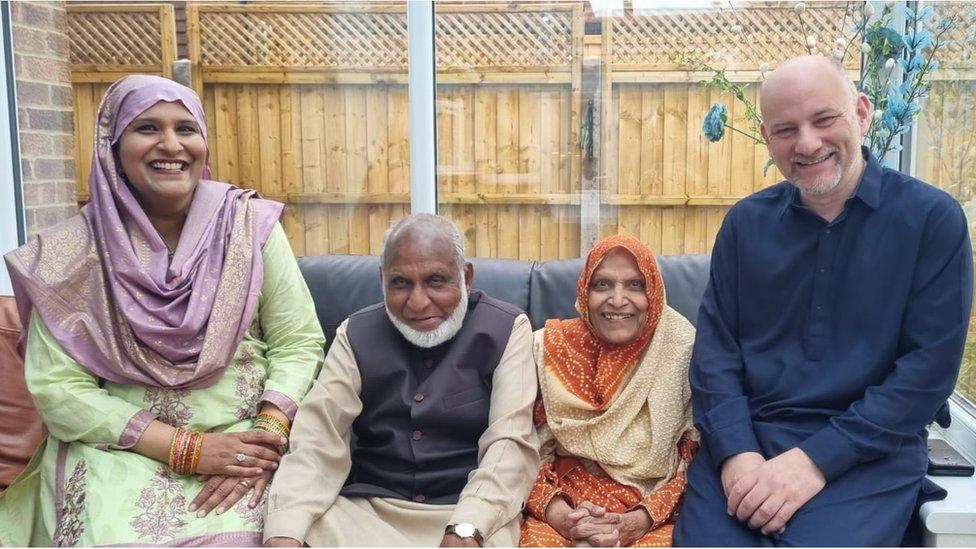
Dr Hajra Usmani, left, said she knew of many overseas doctors who had left the NHS
That was a problem for Dr Hajra Usmani, who worked in the NHS for 18 years but decided to leave her post as an A&E consultant in Frimley, Surrey, last year.
The mother-of-two, aged 46, who is now working in a similar role in Medina, Saudi Arabia, said she was deterred by visa costs to bring her elderly parents to England.
"My mum has been diagnosed with severe dementia and my dad has cognitive impairment," she said. "I cannot leave them on their own.
"They would have had to pay a surcharge to the NHS, but I stopped the application last September because it was coming up to £6,000 for the visas plus the legal fees before the Home Office would even consider the applications.
"We're now in Saudi Arabia where they have visa extensions for dependents."

Dr Usmani said she knew of many fellow doctors taking a similar path.
"Most of my colleagues here are ex-UK trained NHS staff. This is an exodus. The NHS is crumbling at the moment."
EU staff decline
From within the EU, the share of recruits joining England's NHS each year fell from 11% in 2015 to 6% last year.
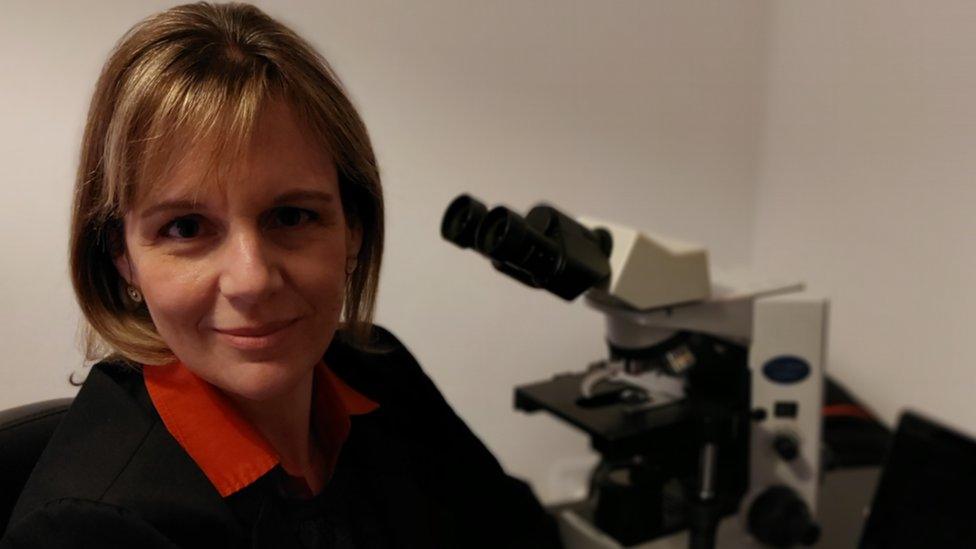
Alexia Tsigka said there was a "shortage worldwide" of histopathologists
Dr Alexia Tsigka, a consultant histopathologist at Norfolk and Norwich University Hospitals, said her specialism "is a shortage occupation... according to the Royal College of Pathologists only 3% of UK departments are fully staffed.
"And I haven't seen anyone European coming after Brexit, at least in our department. Doctors that have applied to our department mostly come from India, Egypt and some from Sri Lanka.
"Post-Covid, we've also lost quite a few colleagues. We're facing an exodus."
The Department of Health and Social Care (DHSC) said the percentage decline in EU nationals joining the health service could have been down to more rigorous language tests introduced by the Nursing and Midwifery Council (NMC).
A spokesman said the government supported the tests as "an important patient safety measure".
Another possible factor was the economic recovery of southern European countries, as many nurses had come to the UK when work at home was limited.
International recruitment has "long been part of the NHS workforce strategy", the spokesman added, with around one-in-seven staff reporting as non-British.

The department spokesman rejected the claim that "immigration restrictions were a key reason for healthcare staff leaving the UK".
There was "no obligation on healthcare professionals to apply for [Indefinite Leave to Remain]," he said, "and they could, under the new points-based system, remain in the UK on a health and care visa which was a key promise of the government's manifesto".

More about this story
The Shared Data Unit makes data journalism available to news organisations across the media industry, as part of a partnership between the BBC and the News Media Association.
For more information on methodology, click here, external. For the full dataset, click here, external. Read more about the Local News Partnerships here.
Additional data analysis by Molly Wilshaw
Related topics
- Published25 July 2022

- Published15 June 2022
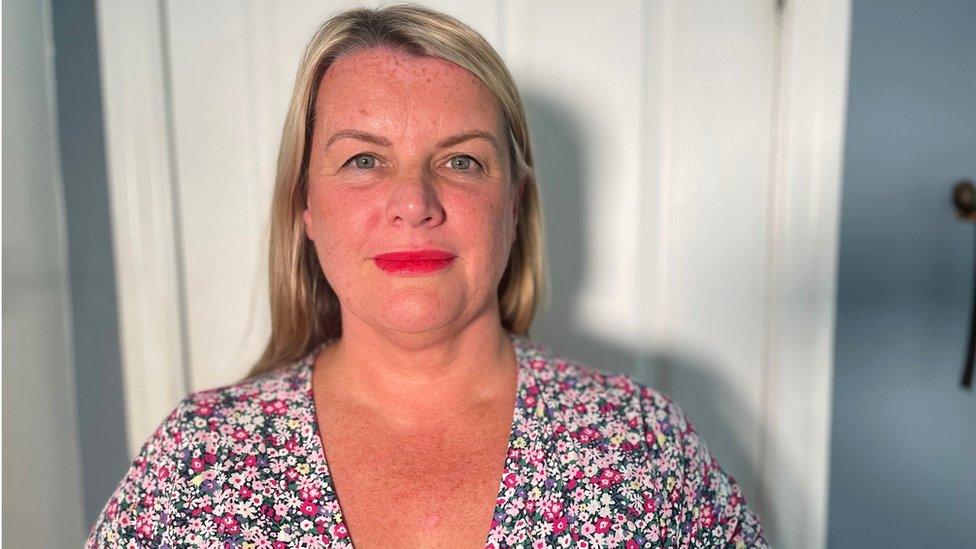
- Published19 April 2022
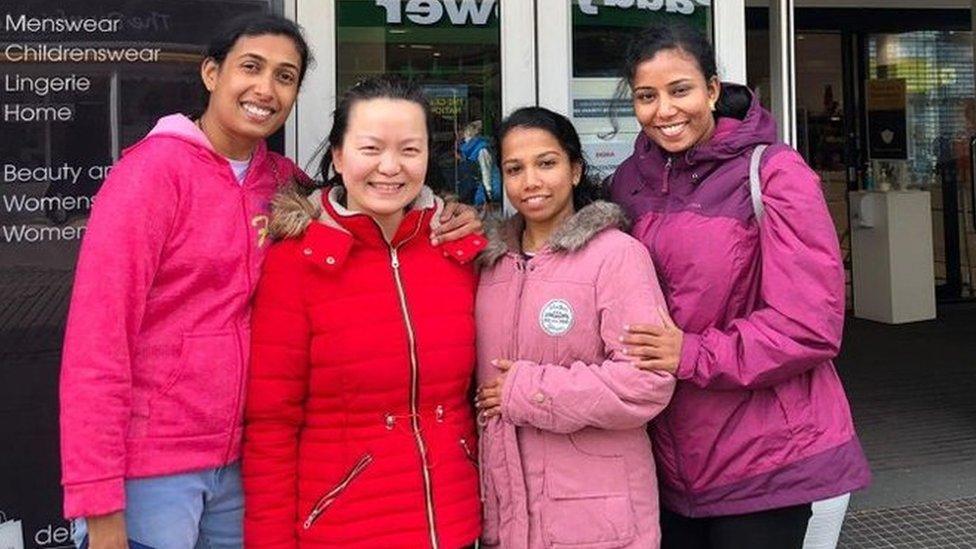
- Published6 January 2022

- Published16 October 2017
